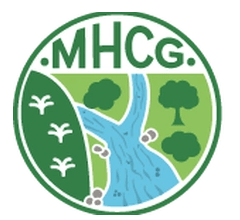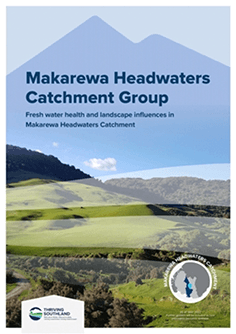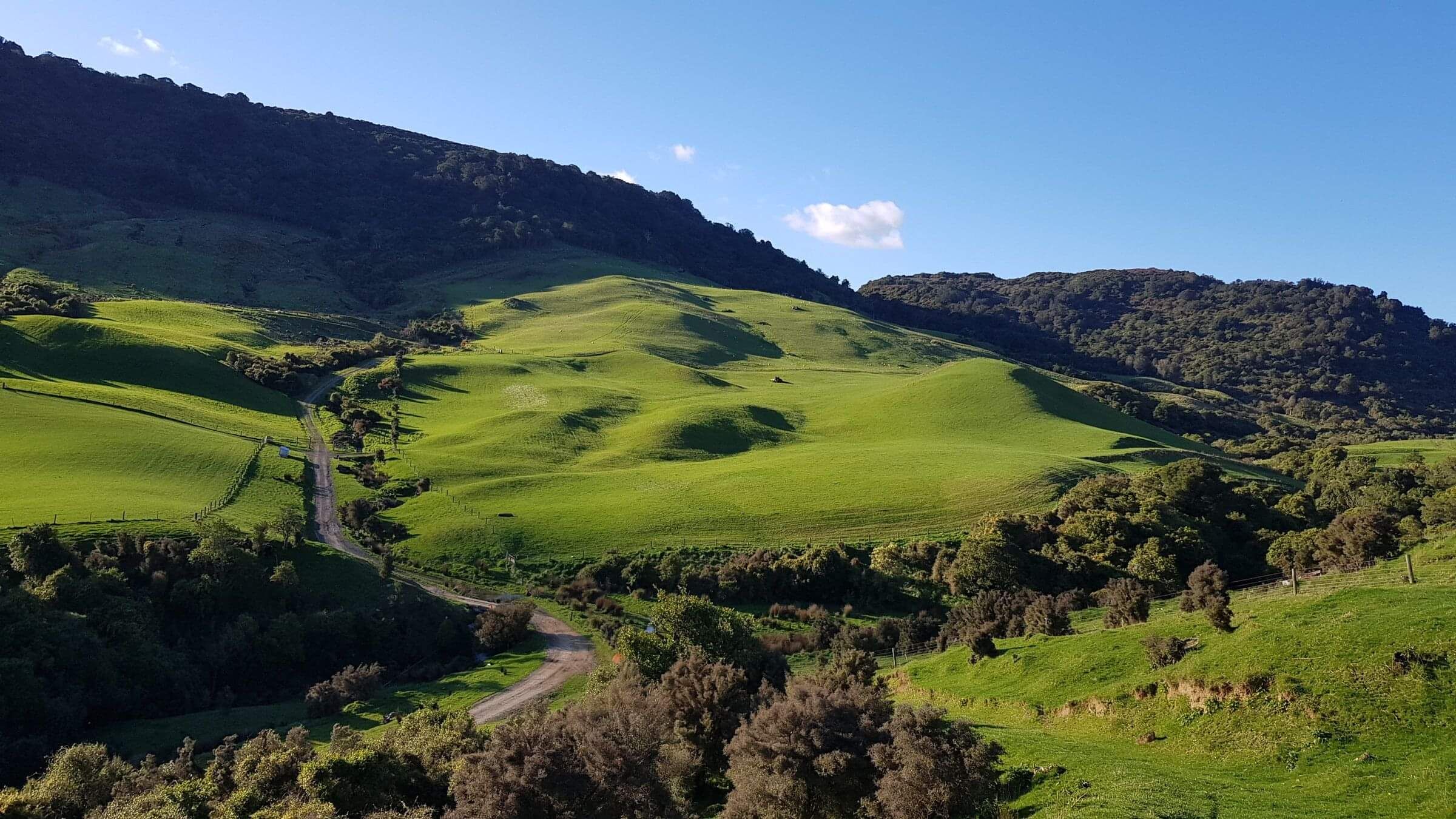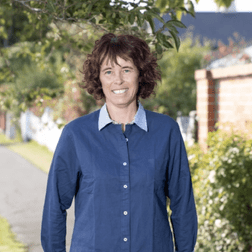Makarewa Headwaters Catchment Group
Covers the Lora and Otapiri Gorges water catchment area east of State Highway 96, and includes the landscapes where the Otapiri, Lora and Makarewa streams rise.
Read our Catchment Group Summary
Read our Factsheet
Your Catchment Group Coordinator
For more info, or to join the catchment group contact Sarah
Sarah Thorne
027 588 5200
sarah@thrivingsouthland.co.nz
Catchment Group Email
makarewaheadwaters@outlook.com

____

About the Group
Date the Catchment Group started
May 2019
Types of people in the group
The group is made up of a cross sector of farmers: sheep, beef, dairy, deer and horticulture, and community members, all with strong links to their community and local schools. All are welcome.
Number of members in the CG
The Makarewa Headwaters Catchment Group is made up of a core group of 10-12 people, with a wider group of 100 people (and growing!), who join in with events and projects that interest them.
How we work
The group meets regularly - when needed, but roughly 4 times a year at the Otapiri Hall.
The group also sends members to the twice yearly Southland Catchment Group Forum meetings, Catchment Group training opportunities, Oreti Catchment Group Leaders Get Togethers and supports other Southland Catchment Group initiatives.
Projects completed
The Makarewa Headwaters Catchment Group successfully combine community projects alongside scientific ones.
Their first event was a field day and woolshed discussion on the new National Environmental Standards (NES) for Freshwater with Corina Jordan - Environmental Strategy Manager for B+LNZ. They toured Mark & Elspeth’s Thomson’s Farm and looked at the practical aspects of the new legislation and possible on farm solutions.
They then started learning about their water quality and had a great presentation from Justin Kitto, one of DairyNZ's Water Quality Specialists, on the water quality of the Lora and Otapiri Gorges. This included an analysis of the groups water quality data from Environment Southland. They also teamed up with Limehills School and the Environment Southland’s Education Team to investigate the health of the Otapiri Stream using the SHMAK kit (Stream Health Monitoring Assessment Kit), which was lots of fun as many of the Catchment Groups families are part of the school community.
2021 started with a very special field day on Margaret and Malcolm Mackenzie's Farm, looking at their native plant nursery and impressive shelter belts. It was an amazing opportunity to hear and learn from Malcolm as he shared his extensive knowledge on successfully propagating native seed from local sources, through to seeing what these native shelterbelts can look like in a short period with well managed establishment processes. Jesse Bythell from the QEII Trust provided a wealth of knowledge too.
They hosted a Ministerial visit with Damien O’Connor and delegates from MPI, and ran the Great Gorge Clean Up for some Lockdown fun for their community - many thanks to Vetsouth for kindly donating some goodies for prizes.
Alongside this, they kept up to date with the work of the multi agency Winter Grazing Action Group (as one of their members was part of this MPI supported initiative), took part took part in a nationwide eDNA (environmental DNA) water quality monitoring programme in May - taking their sample from the lower Silverstream to see if there was any evidence of deer or pigs in the area. Then wrapped the year up with a Christmas BBQ.
2021 also saw the successful funding of their first big project by Thriving Southland. The group worked closely with Ravensdown to use their LUCI-Ag modelling to identify Nitrogen, Phosphorous and sediment loss hotspots and pathways in their catchment, and explore mitigations options at a farm and catchment wide scale. This project was successfully finished in 2022 with a public field day in July to share the results of this work. Please look here to find out about this project.
Their other big project in 2022 was to start creating a community space by the Makarewa River. Over 30 people got together in September to plant over 230 plants donated by Malcolm Mackenzie, the Legg Family, AB Lime, and Anna and Casey. They also met with Hokonui Runanga in September and started talking about creating a project looking at the impacts of larger feral pest animals – including best management, and the science - to show the impact that these animals are having on farm systems and native bush, and investigate various control options. They ended the year with a Christmas social, and lots of plans for 2022.
2023 saw the Catchment Group join with the other 6 Oreti Catchment Groups to host a Mid & Lower Oreti bus trip to help understand their catchment better and all the great work that is being done to look after it - Kowhai Reach was one of the sites visited. They ran a successful design a Makarewa Headwaters Catchment Group logo competition with local kids, and developed and threw themselves into the Makarewa Headwaters Revival Project to understand the impact of large feral pest ungulates (deer, pigs, goats and wild merino – all have cloven hooves) in their area.
This project had been a dream of theirs, and they worked really hard to gain funding and design and complete Phase 1 - to understand the problem and create awareness of these pests and impact they have on their catchment – and are now working on developing Phase 2. All information on the project can be found here, including videos, reports and detailed project information.
They ended the year supporting the QEII planting day on Kowhai Reach – a special local fragment of lowland riparian forest- speaking about their Makarewa Headwaters Revival project at the Southland Catchment Group Forum and Southand Ecological Restoration Network (SERN) bus trip, and planning their new community nursery to raise local native plants using funds they had received from the Westpac Watercare Project. Many thanks to Westpac and the NZ Landcare Trust.

Projects underway
Makarewa Headwaters Revival Project – Phase 1 complete, and planning has started to develop Phase 2 -to continue to raise awareness of the impact of deer, pig, goat and sheep in the catchment, and work out how to manage them
Create and run a community nursery to raise locally eco-sourced native plants to plant in our catchment that inspire community and ecological connections
Organise an Upper Oreti Bus Trip with the other Oreti Catchment Groups
Developing a community space and planting project on the Lora Gorge Road on the Makarewa River
Projects planned
Support the restoration of Kowhai Reach in partnership with local landowners and the QEII Trust
Increase recycling initiatives in the area
Understand and protect the flora and fauna of our catchment
Organise an Upper Oreti Bus Trip with the other Oreti Catchment Groups
Hosted events / meetings
Field day and woolshed discussion on the new National Environmental Standards (NES) for Freshwater – 27 October 2020
Learning about the health of the Lora Gorge and Otapiri Gorge waterways – 4 November 2020
Stream health visit and investigation of Otapiri Stream with Limehills School - 8 December 2020
Native plant nursery and seed propagation event at Margaret and Malcolm Mackenzie's – 26 February 2021
Ministerial visit with Damien O’Connor and delegates from MPI – August 2021
Great Gorge Clean Up – September 2021
Christmas BBQ – 10 December 2021
LUCI Ag Project Field Day – 27 July 2022
Planting day at new community space – 10 September 2022
Christmas Social – 10 December 2022
Mid & Lower Oreti Bus Trip (co-organised by all the Oreti Catchment Groups) – 22 March 2023
Hosted Thriving Southland Catchment Group Couch Thank-you Photo Shoot – 19 April 2023
Support QEII Withy's planting day – 27 October 2023
Makarewa Headwater Revival Project Community Event – 9 November 2023
Lunchtime talk at Southland Restoration Network (SERN) Spring Field Trip – 11 November 2023
Purpose for Establishment
Updated August 2021
- To understand how to manage our farming practices collectively and proactively, to better the on-farm environment, take responsibility for our catchments water quality, comply with new environmental legislation and promote the values that drive food production in this catchment as a collective voice.
- Connect and create shared values: Sharing best practices management techniques and knowledge across the community in a way which fosters learning, community connection and ensures the quality of our land and water for future generations to enjoy.
Objectives
Updated August 2021
- Be proud of what goes into the Makarewa River
- Encourage good management practices intergenerationally
- Which encourages a broader focus on the values of farming, rather than only focusing on fencing and planting activities
- Strive for best practice - sharing of knowledge & on farm findings
- Retaining the nutrient inputs to utilise as efficiently as possible
- Continue to swim in our waterways, downstream and onfarm, for years to come
- Community events & connection- creating shared spaces
- Provide a social, educational environment to upskill and share knowledge and connections
- Provide a collective voice











